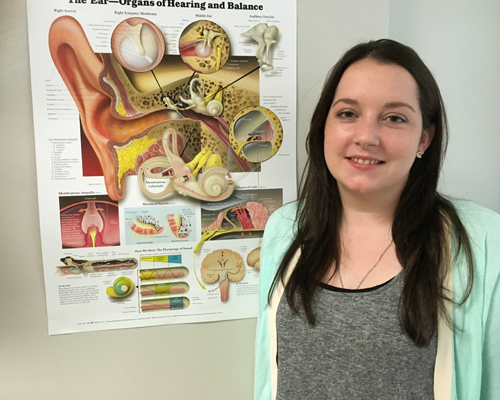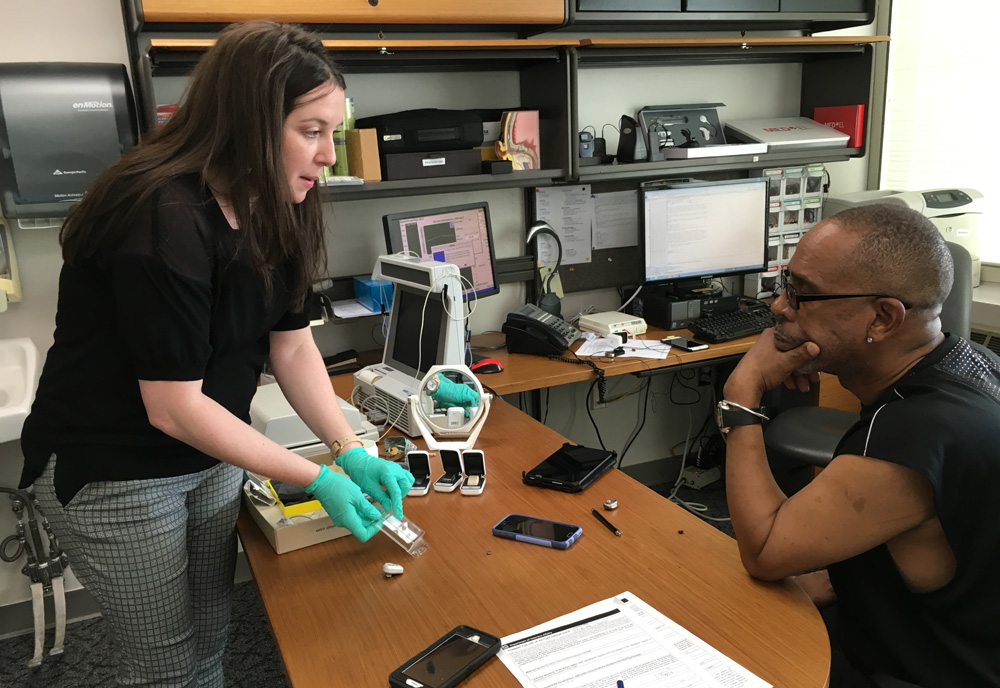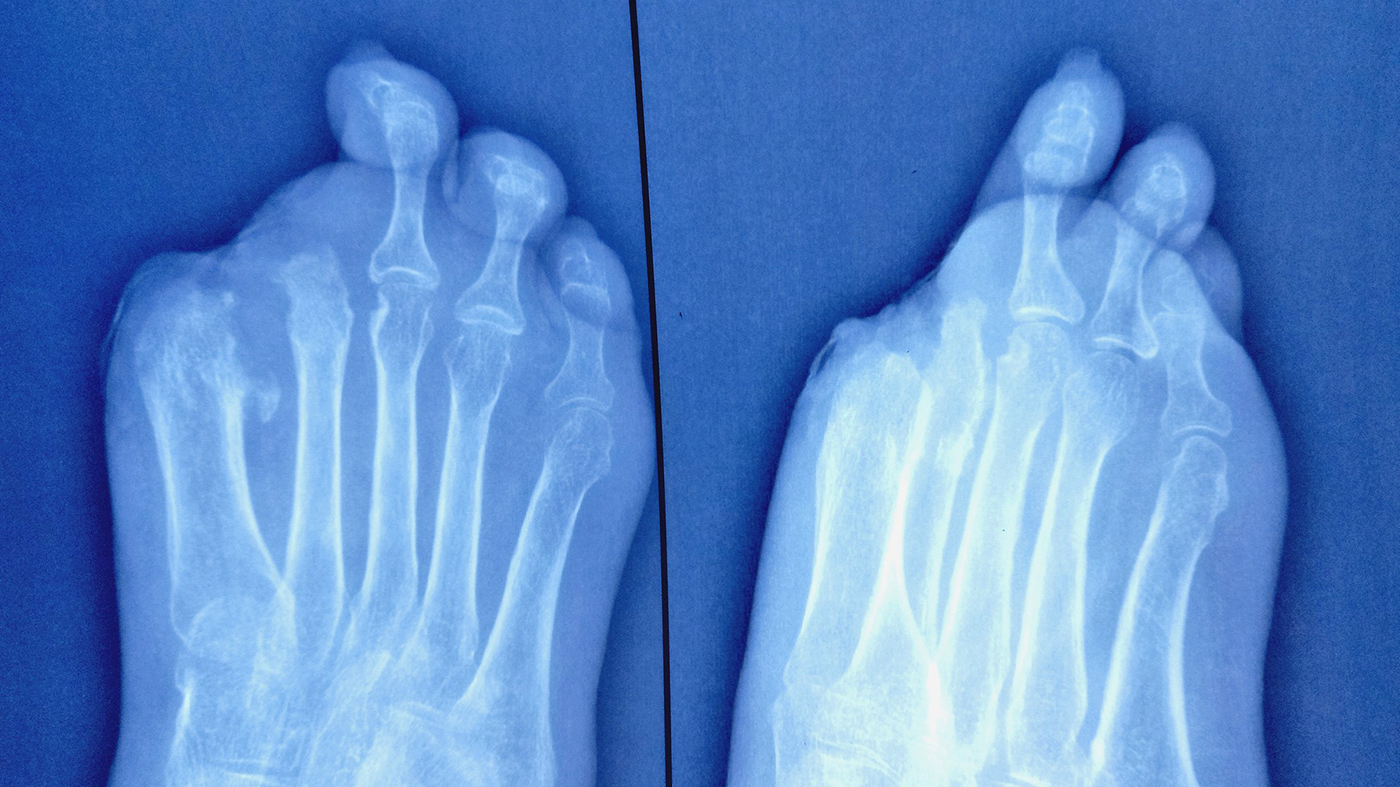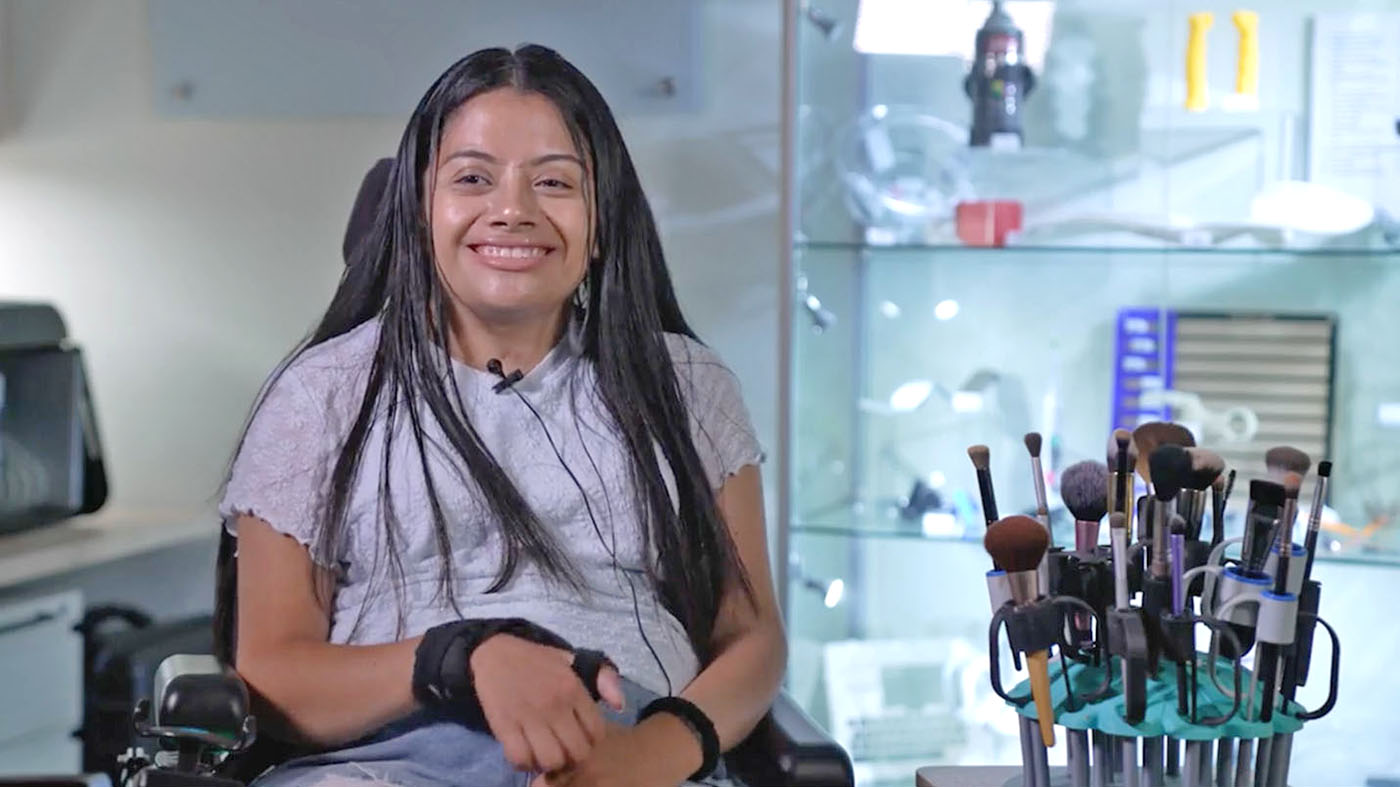Audiologist Dr. Erica Bush is thoughtful and naturally elegant — and then there’s her blunt language. She makes it clear that she grew up in abject poverty and was likely either born deaf in her left ear or lost her hearing prior to age five due to illness and neglect.
Dr. Bush was first diagnosed with hearing loss at age five during a pre-kindergarten hearing screening at her public school. As a little girl in Northeastern Pennsylvania, Dr. Bush grew up with Christian parents who believed in the power of prayer.
“My mother said, ‘I’ve prayed for you, and God says you can hear’” Dr. Bush says. Without any family emotional support, no financial support (no health insurance), no audiologists or knowledgeable hearing healthcare workers in this remote area of the Poconos, as well as the neglect in the school system, she received zero help until she was in the 4th grade when public laws were updated.
Often because of the way alphabetical seating was arranged, “I was seated with my good ear to the wall, so I couldn’t hear the teachers well or participate in any social conversations near me on a good day. On days where I was sick with frequent ear infections in my good ear, along with my tinnitus, I couldn’t hear anything.”
“But now, hearing your story, I respect you even more.”
She began excelling academically — working with a very compassionate, skilled hearing itinerant for which she will forever be grateful. But at the same time, “All I wanted was to be was normal,” she says. She never told classmates or any close friends she had hearing problems until late high school.
With a major in Communications Sciences and Disorders and a Bachelor’s of Science degree from Penn State, Dr. Bush then continued on to study Audiology at Bloomsburg University of Pennsylvania, earning her doctorate degree in Audiology.
She completed a one-year residency at VA New York Harbor Health Care System (VANYHHS) and returned with her husband to VANYHHS four years ago.
Dr. Bush started the BAHA (bone-anchored hearing aid implant) program at VANYHHS a little over two years ago, after deciding to receive her own implant at New York University.
“I want my Veterans to know all their options. I want to make sure they are educated and they know if they are a hearing aid candidate, a BAHA or a traditional cochlear implant candidate,” she says. “My implant has changed my life for the better.
“The educational field and healthcare field should be reminded that it is our job to continue to learn and recognize we are not experts at everything. Team work is huge. Education and continuing education is huge. If you don’t know the answer, figure it out or ask someone for help.
“I do still believe in the power of prayer, as God’s strength has led me thus far, and specifically here to help myself and to help others.”
As Dr. Bush interacts with a hearing implant patient, it’s clear that her own experience with hearing loss and hearing devices creates a bond of trust.
“This one is heavier, this one doesn’t give you that whistling feedback,” she explains to patient Michael Fuller, an Army Veteran and accomplished N.Y. State professional in Community Services in Staten Island.
Fuller is straightforward in expressing his appreciation of Dr. Bush. “I always respected you, but now hearing your story, I respect you even more.” he says.
Dr. Bush says, “The message I want to convey to both patients and clinicians is that ‘education is power.’ No matter what you are or your background, everyone needs help. I am here to help, that is my gift to you. Pay it forward. Many people have helped me, and I wish to pay it forward.
“We can’t control ignorance by others, nor can we change the past. We must do the best with the hand we are dealt and move forward. We control our own destiny. We as healthcare workers can make a positive change.”
Read a more detailed version of her story here.
Topics in this story
More Stories
The abstract DREADD describes the emotional and psychological toll experienced by patients following any diabetes-related amputation.
Navy Veteran Brenda Guevara partners with OAM to develop an innovative makeup brush holder that enhances independence.
Summer Sports Clinic is a rehabilitative and educational sporting event for eligible Veterans with a range of disabilities.







I was very happy with the treatment from Dr. Bush. She was very compassionate and showed a real interest in addressing my problem. I walked away feeling confident she did everything possible to help with my hearing loss. She impressed me as being very knowledgable in her profession. I wish her all the best. Thanks again Dr. Bush!
I do not read all va articles but I read more than the average veteran. they are infrormatve and in some cases very helpful.. keep up the good work
Seems like the VA is doing no more than patting one another on the back. At-A-Boys are good but Vets are waiting for medical care and we get emails about how well the doctors and staff are.
I lost my hearing from my left ear in a accident in my duty Desert Shield/Storm Operations. I have been living with this in silence since then. I didn’t knew all the benefits that VA has for me until years later. I’m receiving service from VA since 2009. The case has not been connected yet but I want to know if there’s a sollution or not for my hearing loss. Thanks for the article.
I spent 2 yrs and 9 months in the Army back in 1956 to 1958. My home burned with all my papers in it back in 1966. I need VA help with my ears but they say in St. Louis that in 1970 a fire came about that burned Veterans papers that were in the service from 1950 to 1960.
Can you help me get help with my ears.
Thanks and blessings,
Homer Owen
The people at VA don;t take hearing loss very serious, they gave me a pair of hearing aids that only amply the noise in my head. My hearing loss is progressing more rapidly than ever before, have had it for almost 30 years. It started when a rocket was fired off my ship, and my general quarters station was on deck, since that day I’ve had a constant roar in my head, but no one takes me serious.
Do tell.
Although I was on the Hearing Conservation Program for two enlistments as an tactical electronic warfare troop; the VA continues to deny my claim for bilateral hearing loss, but accepted a tinnitus claim based on the same audio exam.
I’ve been struggling for over a year to receive compensation based on profound to severe service connected bilateral hearing loss…25 years after separation.
The Determining Office first said NO based on lack of Military Records due to the St. Luis Fire; thank God I had an Official Copy.
I submitted a very detailed Notice of Disagreement which “did all the work” for the Reviewing Officer.
I’ve even had my local Representative at the time, Rep Will Hurd, contact the “Houston Office” Still nothing and months go by.
So, I’d have to say the VA is DEAF to the needs of Vets with service connected bilateral hearing loss. Prove me wrong.
SSGT Charles E. Ankner, USAF, Sep.